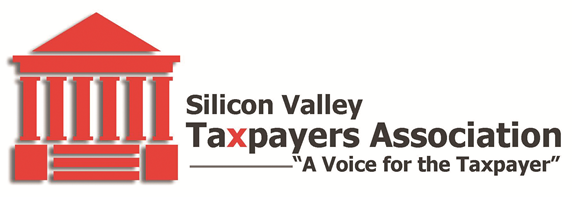-
-
-
Elections
-
-
-
-
-
-
-
California sky-high income tax problem
-
-
-
-
-
-
-
-
-
-
-
-
"Could California's sky-high state income tax adversely impact our pro sports teams? Uh oh." by Richard Rider
UPDATED: November, 2014
In 2011 the Dallas Mavericks beat the Miami Heat for the NBA title. The next year the upstart Oklahoma Thunder lost to the Miami Heat in the NBA finals. In 2013 the Miami Heat repeated, defeating the aging San Antonio Spurs. In 2014 the Spurs avenged their loss from the previous year, beating the Heat in the finals.
What did these VERY different teams have in common? With the exception of the Thunder, all the finalists are "housed" in states with zero state income tax! Moreover, Oklahoma's top state income tax is a rather modest 5.25% -- and there are proposals to further lower this top OK tax bracket.
Coincidence? Maybe. Was this factor the ONLY reason these teams made it to the finals? Definitely not!
But because of a little-known change in the 2013 federal income tax law, this match-up of low/no tax income state finalists in pro sports playoffs may become more and more common. This change is particularly bad news for California sports fans.
State income taxes has always been a consideration for the truly wealthy. But starting in 2013, for income above $2 million, it gets a bit worse. 22% of state income taxes are no longer deductible on one's federal income tax returns. This is a significant change in tax law for the "tax whales" in a high tax state.
Actually the complicated "Pease Limitation" disallowing deductions starts at $300,000, but doesn't really hit full stride until income exceeds $2,000,000.
It's definitely not the ONLY deduction largely phased out for the wealthy -- the same is true for many other deductions, starting with the property taxes, charitable contributions and mortgage interest. But because income tax rates can vary so dramatically between states, this makes a state income tax rate even more important to the truly rich than it used to be. For these folks, one's state residence and earnings center is more important than ever when considering where one is going to live and work.
For a pro sports athlete, such tax policies are perhaps more important than in any other occupation. Such athletes have a rather limited and very uncertain high earnings window. With luck, an athlete can earn a great income for a decade or more. But at any time, an injury or a scandal can largely end one's high-earnings days -- both as a player and an endorser.
The cliche' "make hay while the sun shines" certainly applies to our pro sports stars. Free agents naturally want to maximize their salaries, knowing full well the relatively paucity of probable earnings once their pro sports days come to an end -- and the fact that "the end" can come from an injury in any game.
For CA, we are getting hit with a double whammy. With Proposition 30 passed in November, CA has raised its income tax on the wealthy by 29%. Combined with this 2013 change in the federal income tax, the combined NET tax increase is dramatic. Do the math, and you find that in 2011 the net CA income tax for income above $2 million was 6.7%. In 2013 that net CA income tax in income exceeding $2 million jumped to 9.3% -- an increase of 39%.
Some would respond that high income earners has been subject to AMT (the Alternative Minimum Tax) and thus could not deduct his state income tax in years past. But almost surely pro athletes haves NOT been subject to AMT.
When you make that much "earned" income (not investment income), and have relatively few deductions (even when 100% of such deductions were allowed prior to 2013), you seldom if ever trigger AMT. Big-time pro athletes earn income with RELATIVELY few deductions, tax credits, etc. so such a sports star has been paying the full rate for many years. It's only the returns where special income (some municipal bond income, for instance) or massive deductions are used that AMT is triggered -- ironically mostly for incomes below $1,000,000.
This little-noticed tax increase through the loss of deductibility was not brought up during the Prop 30 campaign because at the time state income taxes were still fully deductible for federal income tax purposes. Only after the measure passed in November did the geniuses in Congress change the rules on this.
Teams like the LA Lakers, the Clippers and the Dodgers might be able to largely offset this disadvantage with their huge regional population base (these teams can pay higher salaries) coupled with better endorsement opportunities. While the San Francisco fan base is smaller, they are blessed with an exceptional number of wealthy corporations (still) headquartered there. But pro sports teams in Oakland, Sacramento and San Diego will be at a much greater disadvantage than the LA teams.
The Golden State's Democrat legislative leadership has already announced plans to make the sky-high California "temporary" millionaire's income tax essentially permanent. Hence the long term future for my local sports teams (small market, lousy endorsement opportunities) is looking mediocre at best. It's just one more reason for the Chargers to relocate elsewhere.
One of the impacts from the fiscal cliff legislation which high income earners should be aware is the reintroduction of the Pease limitation.
forbes.com|By Frank Armstrong III
